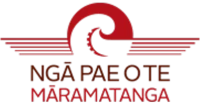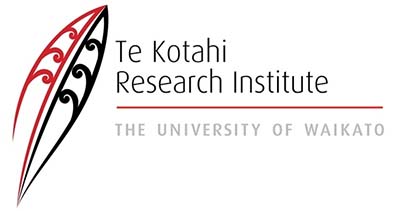This project funded by the Digital Council looked at Māori perspectives on trust and automated decision making. The research contributed to the Digitial Council's work on technological issues facing New Zealand relating to trust. This project explored the understanding of the trust Māori have in automated decision-making technologies and how this influences perceptions of the harm and benefit of technology.

This project is funded by Genomics Aotearoa to develop guidelines for genomic research on taonga species. The guidelines are being developed as a tool to assist in the planning and execution of genomic research in a manner that honours taonga, kaitiaki and mātauranga Māori. The guidelines support mana whenua and serve as a starting point for hapū and iwi to formulate specific guidance that is relevant to their own tikanga and mātauranga.
On behalf of Te Nohonga Kaitiaki team Maui will outline new guidelines for genomic research on taonga species that have emerged from a Genomics Aotearoa funded research project.
View the Kingitanga day 2021 video.
Download the Te Nohonga Kaitiaki Guidelines for Genomic Research on Taonga Species.

Te Tuakiri o te Taonga
This Catalyst Seeding Fund project created the Aotearoa Biocultural Labels Working Group (ABLWG) and introduced the Traditional Knowledge (TK) Label project to New Zealand. One of the primary responsibilities for the ABLWG has been to test the application of the new Biocultural (BC) Labels to genetic resources and genomic data in institutions.

Biocultural Labels Initiative
This University of Waikato Strategic Investment Fund project supports the development of the Biocultural Labels Initiative which focuses on how to practically encode Indigenous provenance information and cultural responsibilities into research data, including Digital Sequence Information (DSI) for genetic resources. This initiative provides a practical application of Indigenous data sovereignty principles to issues of access and benefit-sharing for genetic resources.

Traditional Knowledge Licenses
This internship project focuses on the development of Traditional Knowledge (TK) licenses. Unlike current Creative Commons licenses, TK licenses create the possibility for collective ownership and authority. They also have capacity to incorporate cultural protocols and expectations around future use of traditional knowledge.
While the TK Labels are an innovation in the field of intellectual property law, we anticipate that the TK Licenses will extend this work to create a legally binding strategy for communities to maintain control and authority over important traditional knowledge that is shared in research and commercial contexts.

The aim of the ‘Koi te mata punenga: Informing priorities for research and capacity building’ project is to understand Iwi priorities for research and identify different pathways for research and capacity building. We will hold meetings with 3 x Iwi (Te Arawa, Ngāi Tamarāwaho and Ngāti Maniapoto) to co-design community-based processes for identifying research and capacity needs which will inform future collaboration activities. The Iwi projects online information collection and/or knowledge transfer and vary from IP in aquaculture, health research in preparation for introduction of Māori Health Authority and iwi communication and digital storage.

Delivery of Cultural Health Indicators for Lakes unfinished critical milestone from MBIE Project. Completed this critical step (CS), by aligning work undertaken by the Lake Resilience programme and its predecessor Lakes Restoration OBI (2005-2015), with the work of Te Arawa Lakes Trust (TALT). Final report to MBIE submitted in August. TKRI supporting PhD following up on this work with Nico Donovan-Pereira on Mātauranga Informed Freshwater Management in the Te Arawa rohe.
Reports
The Usefulness of Existing Aquatic Ecosystem Models
Cultural Indicators and Frameworks Report

Collaboration with Dr Mere Berryman to understand Māori views around transitions in mine closures for 3 x communities in Waihi and the South Island. Subcontract connected to a larger project led by University of Queensland which looks at Indigenous communities in Australia and Canada. Funded by OceanaGold. Joint indigenous forum hosted in November 2021 with Canada and Australia.

